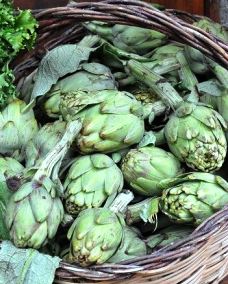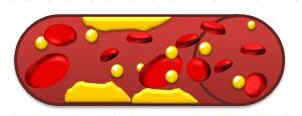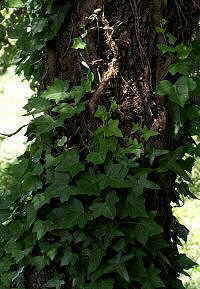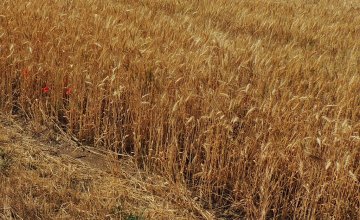Contents
Why is high LDL cholesterol produced?
What is bad cholesterol?
LDL or bad cholesterol is a type of fat that circulates in the blood.
This type of cholesterol is the most important means of transport of cholesterol in the body.
The letters LDL mean “Low Density Lipoprotein”. Lipoprotein is the scientific name of fats circulating in the blood.
LDL cholesterol circulates in the blood, and during its journey, it releases cholesterol, which accumulates in the arteries, forming arteriosclerosis.
Bad cholesterol levels
The recommended LDL cholesterol levels are between 70 – 130mg/dl. (Low levels are healthier).
People with high LDL cholesterol, also have total cholesterol high levels, as these values are closely related.
High cholesterol affects young people and adults, and both, thin and overweight people. |
The high bad cholesterol can occur together with high VLDL cholesterol.
People with high cholesterol may also have high triglycerides, especially if their diet is often based on large servings or sugar.
Causes of high bad cholesterol

Picture of sausages. People with high cholesterol should eliminate consumption of sausages in their usual diet, as these foods are high in cholesterol.
- Genetic inheritance: some people with a family history of cholesterol may be predisposed to have high LDL cholesterol. These people should increase their HDL cholesterol levels to protect their cardiovascular system.
- Poor dietary habits: usually these people’s diet is rich in cholesterol.

Picture of a dish of strawberries with orange and cinnamon.
Strawberries and citrus foods are very low in calories and provide antioxidants for the cardiovascular system. Take 2 to 3 whole fruits (not juices) daily along the whole day.
Cholesterol rich foods are meats, fatty cheeses, cream (and milk or cream sauces), butter (or pastries made with butter), egg (yolk custards and desserts), fatty meats and precooked, mainly.
* More information: see Foods rich in cholesterol.
- Other factors: smoking habits, alcohol and stress can contribute to have higher bad cholesterol.
Also, during pregnancy or if you take hormone therapy or birth control. Check with your doctor to study the cause of your cholesterol.
| POSSIBLE CAUSES THAT MAKE INCREASEBAD CHOLESTEROL |
| Smoking Alcoholism Stress Sedentarism Food rich in cholesterol Overweight and obesity Genetic Factors |
Only a doctor can determine the cause of your bad cholesterol levels. It is recommended to see your doctor to treat these disorders.
Dangers of bad cholesterol

Picture of artichokes. Artichokes are highly recommended foods to treat cholesterol. They are naturally high in fiber and with medicinal components for the liver.
Cholesterol is a silent disease that appears in lean, young, adult or overweight, with no apparent symptoms. It is popularly known as “high cholesterol” or hypercholesterolemia.
Because much of the population shares bad diet, cholesterol has become a daily topic and often undervalued.
Cholesterol is a serious disease that can be cured. It affects our vascular system, which is responsible for nourishing our brain and body.
Bad cholesterol increases the risk of arteriosclerosis. Arteriosclerosis is the accumulation of cholesterol in the arteries.
Cholesterol causes obstruction of the blood vessels so the heart must beat faster and arteries lose elasticity, resulting in poor circulation.
If arteriosclerosis is untreated, at the long term, it can cause heart attacks and strokes in different parts of the body, such as stroke in the brain or extremities.

Arteriosclerosis is the accumulation of cholesterol in the arteries that hinders the blood circulation
| RELATED INFORMATION:Diet to lower bad cholesterol |
![]() More information about cholesterol.
More information about cholesterol.









